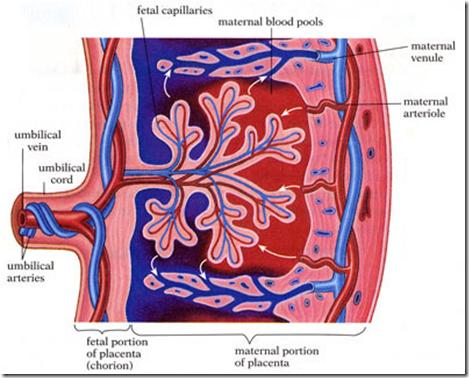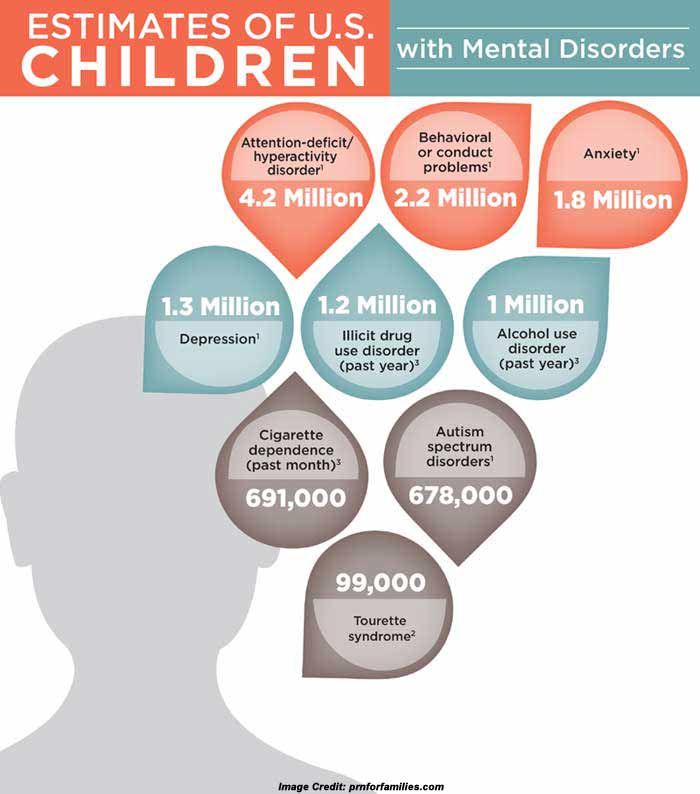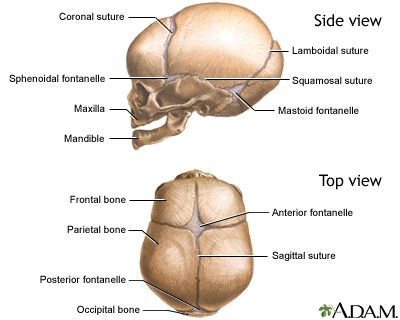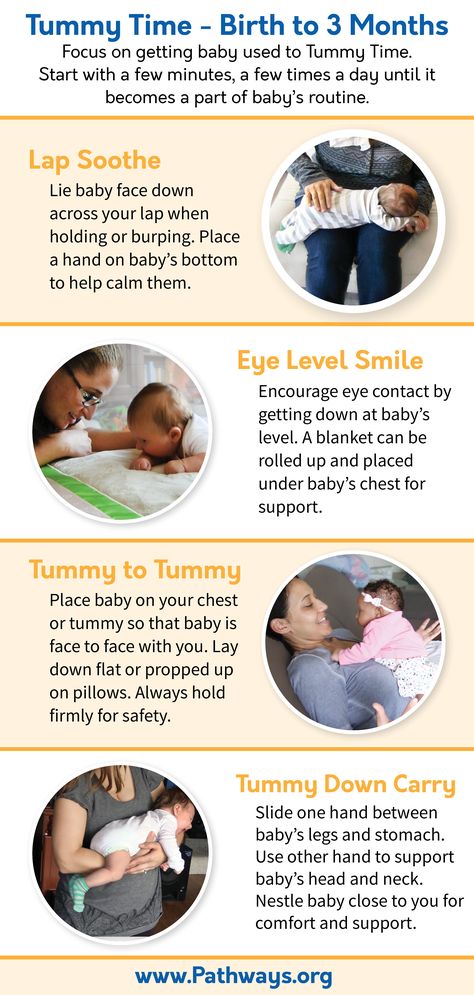Stress relief in pregnancy
10 tips to relax in pregnancy
Tommy's PregnancyHub
It’s natural to get a bit stressed when you’re pregnant. Here are some ideas for how you can relax and look after your emotional wellbeing.
You’ll probably have a lot on your mind during pregnancy. Coping with your symptoms and changing lifestyle, as well as everyday life, can sometimes be overwhelming.
Your mental wellbeing in pregnancy is just as important as your physical health, so try to take care of your mind as well as your body. Here are ten tips to help you relax in pregnancy:
1. Take time out for yourself every day
Do something you enjoy that’s just for you. Take a warm bath, chill out to some music, close your eyes, gently massage your bump – whatever makes you feel peaceful.
2. Talk to someone you trust
Getting things off your chest and talking your worries through with an understanding and trustworthy friend, family member or work colleague can make all the difference. Talk about how you’re feeling.
3. Stay active every day
Exercise releases endorphins that will lift your mood. You don’t have to do aerobics classes or hit the gym. Just try to make staying active part of your everyday life. For example, you could go for a walk or do some office exercises. This can reduce stress and it’s good for your unborn baby, too. Find out more about exercises you can do when you’re pregnant.
4. Rest when you need to
It’s hard to feel cheerful if you’re exhausted and uncomfortable, so make sure you take time to rest when you can.
5. Ask for practical help from family or friends
Can they cook you a meal, help with the shopping, or look after your children? Family and friends are there to support you, so don't be afraid to ask for help.
6. Be realistic about how much you can do (whether at work, at home, or in your social life)
We are all be guilty of taking too much on for fear of letting someone down. Saying no can be tricky, but now you need to take care of yourself. The people around you will understand if you need to say no.
The people around you will understand if you need to say no.
7. Eat well
A balanced and varied diet will keep you healthy and help your baby grow and develop. Find out more about eating well in pregnancy here.
8. Be informed
If something’s worrying you, talk to your midwife or doctor about your options and where you can get support. You can talk to our midwives too! Join our Facebook page or email us at [email protected].
9. Meet other pregnant women or new parents at local groups or on online forums
Ask your midwife or children’s centre what’s available locally. Sharing your feelings with other people having similar experiences can help you feel less isolated.
10. Don’t believe the hype
It may seem like everyone else is happy and coping all the time, but everyone will be facing their own challenges. Lots of women feel low in pregnancy or after the birth, but a lot of people hide their real feelings, especially in public. Find out more about mental wellbeing in pregnancy.
When to get help
Feeling emotional during pregnancy is common because of hormone changes. But it’s important to ask for help if you are feeling sad more than you are feeling happy.
Talk to your midwife or GP about how you feel if you’re feeling low for more than a couple of weeks. They can help you find ways to look after your emotional health, including getting extra help and treatment if needed.
Review dates
Reviewed: 18 October 2018 | Next review: 18 October 2021
This content is currently being reviewed by our team. Updated information will be coming soon.
Back to top
Less Stress During Pregnancy, Healthier For Mom and Baby
Pregnancy itself can be stressful. And combined with other influences, stress during pregnancy can be compounded. But stress relief might be easier than you think.
Written by Carol Sorgen
Your ankles are swollen, you're running to the bathroom every five minutes, and you can't find a comfortable position in which to sleep. Yep, you're pregnant, and most likely, you're also feeling, well, just a tad stressed out. Duh! you say.
Yep, you're pregnant, and most likely, you're also feeling, well, just a tad stressed out. Duh! you say.
The bad news is that stress during pregnancy is more than just an inconvenience; it's actually unhealthy for you and your baby. The good news is that there are ways to cope with it.
There are, of course, stresses that are particular to pregnancy, says David Whitehouse, MD, including:
- Physical discomforts such as nausea, fatigue, frequent urination, swelling, and backache
- Emotional vulnerability caused by hormonal changes
- Fear of delivery, of parenting, and for the health of the baby
Add to those your concerns over a troubled economy, general instability in the world, ongoing threats of terrorism, and you've got an entirely new set of stressors. In fact, in a survey commissioned by CIGNA HealthCare entitled "Troubled Times: How Americans Are Coping In A Stressful World," findings indicate that 64% of expectant mothers say their lives are more stressful than they were a year ago. The survey, conducted in conjunction with CIGNA's support of the 2003 March of Dimes Prematurity Campaign, also found that 65% of expectant moms say they are concerned about the impact that stress during pregnancy is having on themselves and the health of their baby.
The survey, conducted in conjunction with CIGNA's support of the 2003 March of Dimes Prematurity Campaign, also found that 65% of expectant moms say they are concerned about the impact that stress during pregnancy is having on themselves and the health of their baby.
"For many women, having a baby is already stressful enough," says Whitehouse, medical director of CIGNA Behavioral Health in Bloomfield, Connecticut. "The additional concerns Americans face today around the war, a troubled economy, and job security may be leading some expectant mothers to experience stress overload."
According to the March of Dimes, one in eight babies in the United States is born prematurely. High levels of sustained stress, says Whitehouse, may be an important factor in causing these premature births. "That's why finding ways to manage stress is important for expectant moms," he says.
"It's well established that stress can affect your health," Whitehouse continues. "But research shows that pregnant women should pay particular attention to this connection." Some suggestions?
"But research shows that pregnant women should pay particular attention to this connection." Some suggestions?
- Take good care of yourself. Eat regularly and nutritiously, get plenty of rest, do moderate exercise, avoid alcohol, cigarette smoking, or drugs.
- Don't stress out about stress. It's normal to feel stressed, especially during these turbulent times. But look at what's causing your stress and take whatever practical steps you can to address those things that you can control.
- Avoid negative responses to stress. Some of the things we do to deal with stress only compound the problem. Unhealthy ways of coping with stress include withdrawing from people, sleeping to escape problems, skipping meals or eating junk food, and using alcohol and tobacco.
- Schedule time for yourself. Many women have a difficult time saying no to everyone else's requests. This is the time to be selfish. Schedule regular leisure time for yourself to do those things that help you relax.
 Exercise, meditation, massage therapy, deep breathing exercises, even reading a book or listening to soothing music can be relaxing.
Exercise, meditation, massage therapy, deep breathing exercises, even reading a book or listening to soothing music can be relaxing. - Ask for help. Surround yourself with love and support. Expand your support network of friends and family. Insist on help with regular chores. See if your employer offers prenatal or employee assistance programs that can provide information and support. If you have problems with sleep, appetite, sadness, crying, loss of interest in normally enjoyable activities, or excessive feelings of guilt, and these symptoms occur almost every day for more than two weeks, talk to a professional; you may be suffering from depression.
Making use of mind-body techniques, such as yoga and massage, can also help push the level stress during pregnancy way down. "Mind-body techniques are beneficial for both mother and child," says Ann Cotter, MD, medical director of The Atlantic Mind Body Center in Morristown, New Jersey. In the short term, she explains, they trigger the body's "relaxation response," which includes lowered blood pressure, lowered heart rate, and lowered respiratory rate. "When the body is relaxed," says Cotter, "all physiologic processes work more effectively.
"When the body is relaxed," says Cotter, "all physiologic processes work more effectively.
"When done on a regular basis," she continues, "they also ... release endorphins and serotonin ... to bolster our ability to handle stress effectively." What that means for pregnant women are relaxed muscles, better ability to handle a changing body, increased relaxation and decreased pain during labor, improved sleep, and improved mother-baby bonding.
Cotter's favorite mind-body technique is yoga, since it increases awareness of breathing, which can become difficult in the later stages of pregnancy, as well as helps the body adjust to the significant physical changes that occur during pregnancy. "Patients who did not do yoga during their first pregnancy and started for their second pregnancy report easier labor, less fear, and less pain," says Cotter.
Meditation is also another recommendation of Cotter's, because it increases well-being and confidence, as well as relaxation during labor.
Don't overlook the pleasures --and benefits -- of a good massage. Garnet Adair, chair-elect of the National Certification Board for Therapeutic Massage and Bodywork, finds that during massage, the fetus moves around less actively. "This brings a moment of calm to the mom's body," says Adair, who adds that massage also relieves areas of stress and discomfort on the body during pregnancy, especially the lower back.
Before you run to the phone to schedule a massage though, check with your doctor.
When Jeanne Berkowitz was pregnant, she and her husband went to Hawaii for a "babymoon" (a good idea in itself!). While there, Jeanne received a massage from a woman who works frequently with pregnant women.
"She told me that it was important to massage my belly often to introduce the baby to human touch and to the world outside the womb," Jeanne says. "I'm not an expert on the benefits of prenatal massage, but it was fun for us, helped us (especially my husband) think of the baby as a real person, and I can't help but think it had to be good for the baby, too. "
"
Published May 19, 2003.
How can you calm down during pregnancy and stop being nervous?
Nervousness and irritability during pregnancy
Pregnancy is a wonderful time in a woman's life. However, it is often overshadowed by some unpleasant physical or psychological sensations, including increased anxiety. It leads to a change in the hormonal background, which occurs during the bearing of a child. Anxiety is also often accompanied by excessive sensibility, irritability and nervousness.
Nervousness during pregnancy is absolutely normal and is neither a disease nor a symptom of it. Such a state may be associated with the mental anguish experienced by a woman, for example, if the pregnancy was given to her after many years of waiting, or, conversely, was completely unexpected. However, women with a perfectly safe pregnancy, who have no apparent reason to feel irritated or tearful, can also experience increased anxiety.
Medical studies show that 73% of all pregnant women experience unreasonable irritation and anxiety. Meanwhile, a calm and peaceful state of mind of the mother is very important for the proper development of the fetus and delivery in time.
How to calm down during pregnancy?
To relieve nervousness and anxiety in pregnant women, most doctors recommend the usual relaxation techniques: massage, soothing exercises, aromatherapy, a light diet, simple sedative preparations. At the end of the 20th century, music therapy.
Not so long ago, the largest scientific journal Journal of Clinical Nursing published the results of a study on the removal of psychological stress in pregnant women with the help of music. After listening to music for 30 minutes a day for three weeks, the women experienced significant reductions in stress, anxiety, and depression. The most interesting thing is that a reliable result from listening was even when the women were doing other things during it, for example, housework.
The effectiveness of this therapy puts it next to well-known methods such as relaxing massage and herbal preparations. Meanwhile, the versatility and accessibility of music treatment will undoubtedly soon make it the most popular among all other ways to relieve stress in pregnant women.
Music Therapy for Pregnancy
Music Therapy is a simple and inexpensive method of reducing stress with almost immediate results. Just half an hour of music therapy a day is enough to reduce nervousness during pregnancy, calm down, eliminate signs of depression and get rid of increased anxiety.
Of course, not all music is suitable for therapeutic purposes. Scientists note that the greatest result is brought by the sounds of nature, especially water, lullabies, as well as folk chants . You can read more about this in the articles What kind of music to listen to during pregnancy? and The Wonderful Properties of Lullabies.
Music therapy is gaining more and more respect among doctors and midwives. The absoluteness and simplicity of this method allows you to quickly solve the problem of how to calm down during pregnancy and stop being nervous. Use the advice of experienced mothers and scientists to turn nine months of waiting into the most pleasant and peaceful time for you.
Increased uterine tone during pregnancy
Nicotine constricts the blood vessels of the future mother, as well as the vessels of the placenta and umbilical cord, through which the fetus is nourished. Of course, smoking by itself is unlikely to lead to hypertonicity, but in combination with other factors, it may well
If the work is associated with constant stress, it has harmful effects or it is physically difficult, give it up as soon as possible. If this is not possible, use your rights, which are enshrined in the labor legislation of the Russian Federation
Hypertonicity must be distinguished from Braxton-Hicks contractions: it lasts much longer than these training contractions and usually does not go away on its own (or goes away only after a long time)
what is hypertonicity
, - muscle, and according to the laws of physiology, muscle tissue is reduced under the influence of any factor. Slightly the uterus contracts in women every month during menstruation, much stronger during labor pains. The uterus can also contract during pregnancy, doctors call this condition hypertonicity. What it looks like: suddenly, at some point, a woman feels that her stomach is tense, becomes hard, as if “hardening”. This state lasts for a long time - half an hour, an hour, half a day or even all day. Additionally, discomfort (or pain) in the lower back or sacrum may also appear. It is clear that such tension in the abdomen worries the mother, because since the uterus is contracting, then perhaps there is a threat of termination of pregnancy. But here it all depends on how much and how often the stomach tenses.
Slightly the uterus contracts in women every month during menstruation, much stronger during labor pains. The uterus can also contract during pregnancy, doctors call this condition hypertonicity. What it looks like: suddenly, at some point, a woman feels that her stomach is tense, becomes hard, as if “hardening”. This state lasts for a long time - half an hour, an hour, half a day or even all day. Additionally, discomfort (or pain) in the lower back or sacrum may also appear. It is clear that such tension in the abdomen worries the mother, because since the uterus is contracting, then perhaps there is a threat of termination of pregnancy. But here it all depends on how much and how often the stomach tenses.
Braxton-Hicks contractions
It turns out that the stomach can tense up not only at the threat of abortion. Starting from the end of the second trimester, the expectant mother can feel the so-called training contractions (Brexton-Hicks contractions) - the stomach also tenses with them for a while, as if “hardening”, - in general, the sensations are the same as with hypertonicity. But the main difference between such contractions and hypertonicity is that they last for a very short time (a few seconds - a couple of minutes) and pass by themselves, as well as if you change the position of the body or take a shower. Braxton-Hicks contractions occur up to about ten times a day, and by the end of pregnancy they appear even more often. These contractions are completely normal during pregnancy, and they do not indicate any threat of interruption. It’s just that with their help, the uterus, as it were, prepares (trains) for childbirth.
But the main difference between such contractions and hypertonicity is that they last for a very short time (a few seconds - a couple of minutes) and pass by themselves, as well as if you change the position of the body or take a shower. Braxton-Hicks contractions occur up to about ten times a day, and by the end of pregnancy they appear even more often. These contractions are completely normal during pregnancy, and they do not indicate any threat of interruption. It’s just that with their help, the uterus, as it were, prepares (trains) for childbirth.
where does hypertonicity come from
Hypertonicity can appear in any trimester of pregnancy. In the early stages, it occurs more often due to the fact that there is not enough progesterone, a hormone that is needed for the normal course of pregnancy. Another cause of hypertonicity is some changes in the uterine wall, for example, fibroids (a knot of uterine muscle tissue), endometriosis (growth of the uterine mucosa into the thickness of the wall), and inflammatory diseases. In these situations, the wall of the uterus is not able to stretch as it should. At later dates, hypertonicity can develop, on the contrary, with overstretching of the uterus (with polyhydramnios, large fetuses, multiple pregnancies). Very often, hypertonicity is provoked by some kind of physical activity too strong for a woman, for example, if, in a fit of “nesting”, the mother suddenly began to move and rearrange something in the apartment herself, or she simply moved for a very long time without resting. Someone hypertonicity occurs after psychological overstrain.
In these situations, the wall of the uterus is not able to stretch as it should. At later dates, hypertonicity can develop, on the contrary, with overstretching of the uterus (with polyhydramnios, large fetuses, multiple pregnancies). Very often, hypertonicity is provoked by some kind of physical activity too strong for a woman, for example, if, in a fit of “nesting”, the mother suddenly began to move and rearrange something in the apartment herself, or she simply moved for a very long time without resting. Someone hypertonicity occurs after psychological overstrain.
how to recognize hypertonicity
Hypertonicity must be distinguished from Braxton-Hicks contractions - as mentioned earlier, it lasts much longer than these training contractions and usually does not go away on its own (or goes away only after some long time). But if the mother cannot understand whether she has hypertension or not, you should consult a doctor. If there is still an increased tone of the uterus, the doctor, simply by placing his hand on his stomach, will feel a seal, tension, up to the feeling of a stone at hand. In addition, you can always do an ultrasound, on which, with hypertonicity, areas of local thickening of the muscular layer of the uterus are visible, and also look at the cervix, by the state of which you can also judge whether there is a threat of abortion or not.
In addition, you can always do an ultrasound, on which, with hypertonicity, areas of local thickening of the muscular layer of the uterus are visible, and also look at the cervix, by the state of which you can also judge whether there is a threat of abortion or not.
what to do with hypertonicity
If it appears, the first thing you need to do is:
1. Calm down and lie down if possible. Do not panic, extra stress will not bring any benefits, especially since without consulting a doctor it is still not clear whether there is hypertonicity and how pronounced it is. Or maybe it's a false alarm? In addition, you can use relaxation techniques (breathing, auto-training, etc.).
2. Call your doctor. Of course, the doctor will not make a diagnosis in absentia, but since he knows the history of the expectant mother, her real or possible problems, he will be able to give the right direction for further action.
3. If it is not possible to contact your doctor, you can contact any clinic or antenatal clinic where pregnant women are treated. If medical institutions are already closed (late evening, at night), you can call an ambulance - she will take you to the nearest hospital or maternity hospital (you can also get there by taxi).
If medical institutions are already closed (late evening, at night), you can call an ambulance - she will take you to the nearest hospital or maternity hospital (you can also get there by taxi).
4. Hypertonicity is well eliminated by special medicines that relax the uterus (tocolytics), and if the doctor has prescribed them, then you should not be afraid to take them: they help quickly enough and do not harm the child.
how to prevent hypertonicity
There are simple rules that can prevent or reduce the risk of hypertonicity:
1. Quit smoking, watch your weight, do not eat surrogate foods. No matter how trite it may sound, but it is a healthy lifestyle that is the basis of our well-being.
2. Distribute your forces correctly. Laundry, cooking can wait if the expectant mother suddenly feels that she needs a rest. If any activities require physical or psychological stress, cancel them for a while. Do not attend events or places where you may feel uncomfortable, reduce communication with people that are unpleasant for you.












